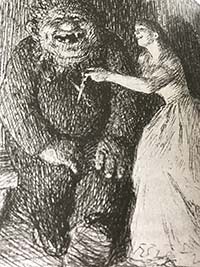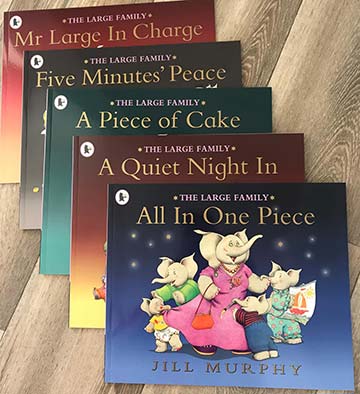
Continuing the second Lockdown Diary series of the offbeat HebWeb column from local writer and story-teller, George Murphy.
In Episode 38 there’s crown green bowling and a famous musician, men who had nannies and the nanny state, working class Tories and street fighting kids, a monologue about a bog and an alternative witch, a Portuguese folk tale and Paula Rego, bats in the belfry, a missing vampire, and more!
Tuesday, August 10th

A warm sunny day. I met Steve Tilston outside Old Town Community Centre and paused for a moment to watch the bowls match that was in progress. It reminded me of blissfully soporific afternoons behind The Woodlands pub in the port where I grew up, squinting at cloth capped men gliding through sunlight before releasing their bowls in silvering arcs across the crown green, followed by the satisfying pock of weighted woods when they kissed.
Steve had brought a flask of coffee along and we had the cool inside of the Community Centre to ourselves. He’s been a successful musician for half a century and his children have taken after him. I asked him the formula for writing a classic song and he said he didn’t know, although he knew he was onto something when writing The Slip jigs and reels. I offered, Who knows where the time goes, then remembered time was one thing that singer was short of.
Steve was heading off to Lumb Falls after our meeting. I told him that when we first went there in the seventies the bathers only wore skin. When we’d finished, I took photographs across the valley and mooched around the field where Acre Mill once stood. The site of the greatest industrial disaster in British history is returning to wilderness.
Wednesday, August 11th
I couldn’t sleep, perhaps because of Steve’s generous caffeine provision, so I read from Stuart Maconie’s, The Nanny state made me, his defence of state provision after the war. As he comments in his Introduction, it’s usually the people who actually had nannies who make disparaging comments about the nanny state.
I’d got to the section on private education. Our last two male prime ministers were educated at Eton. Two thirds of judges, 71 percent of generals and 29 percent of MPs attended public schools. This domination by a tiny proportion of the population has even affected the entertainment industry. Sixty percent of acts in today’s pop charts attended public schools, compared to 1 percent twenty years ago.
Maconie argues that the decline of the art school, the growth of the intern system and the demise of the benefit system that sustained the likes of fledgling stars, such as Jarvis Cocker and Maxine Peake, has meant that working class people are disappearing from TV, films and gigs. Unpaid internships can only be survived by the children of the rich.
Thursday, August 12th
Cock of the school
I met my esteemed Editor for an al fresco coffee beside the town hall. Somehow, we got onto discussing the expectation of parents when we were growing up, that their boys should be champion fighters. Chris confided that his father told him he’d been the best fighter of his local school and was most disappointed when Chris didn’t gain the same accolade, despite teaching him how to do a decent half Nelson.
One day, Chris felt someone grab his shoulders from behind, and instinctively performed his dad’s wrestling move on his assailant. When he looked back over his shoulder he was dismayed to see he had the biggest thug of the school in an arm lock.
The glorious 12th
Your local boggart
 To my mind, the boggart is a big beast, a scarier version of Fungus the bogeyman in Raymond Briggs’s book, nearer to the Trolls in Nordic folklore. The centuries of Viking incursions into the north of England certainly left its mark on our dialect and affected our folklore. Boggart place names still abound in the North, even where the boggy bits have been reclaimed.
To my mind, the boggart is a big beast, a scarier version of Fungus the bogeyman in Raymond Briggs’s book, nearer to the Trolls in Nordic folklore. The centuries of Viking incursions into the north of England certainly left its mark on our dialect and affected our folklore. Boggart place names still abound in the North, even where the boggy bits have been reclaimed.
Morgan le Faye is cited in old tales as the farmer’s friend, using her powers to subdue boggarts, and helping to take the wild out of wilderness. There’s plenty of accounts of latter day boggarts, shrunken creatures who pester good folk - perhaps in revenge for the loss of old habitats. All boggarts, big and small, retain the power to dematerialise, which makes them impossible to catch.
A MONOLOGUE ABOUT A BOG
Back when times were chivalrous,
Authorities did not quibble,
If boggarts, most carnivorous,
Sometimes had a nibble.
A traveller strayed from t’ springy heath,
Then heard demented roars.
Soon his bones lay underneath,
In t’ blanket bog on t’moors!But when a lord wor exercising
His favourite hunting horse,
And t’ boggart, materialising,
Ate a double course,
Nobles said, in consternation,
“We’ll have to write new laws.
T’ boggart’s bit above his station,
In t’ blanket bog on t’moors.”When an alternative witch,
By name Morgan Le Fay,
(With spells for bog and ditch,
She lived down Hebden way)
Said, “Pro-biotic yoghurt,
And other natural cures,
Will pacify that boggart,
In t’ blanket bog on t’ moors!”T’ boggart, all crepuscular,
At twilight left his lair.
Returning, big and muscular,
Found Morgan, sat in t’ chair.
“I know tha needs, old Butch,” quoth she.
“My supper!” he guffaws.
“No, what tha need’s a woman’s touch
In t’ blanket bog on t’ moors.”And then that witch contrarian,
Through spells and incantations,
Turned him vegetarian -
But don’t tell his relations.
Next spell she cast for heavy sleep
(Some say they’ve heard his snores!)
Used t’ clever trick of counting sheep,
In t’ blanket bog on t’ moors.And right through t’ next millennium,
A thousand sheers of fleece,
With pleasant dreams about his mum,
He slept through war and peace.
Till underground he heard a sound
Of revving four by fours,
And his disturbance wor profound,
In t’ blanket bog on t’ moors.For bulldozers were digging gunge,
On orders o’t new boss.
“This bog is like a massive sponge,
Let’s burn off sphagnum moss!”
But after burning, loss of heat,
And boggart knew what caused him
Having frozen hands and feet,
In t’ blanket bog on moors.And to t’ new owners of our moors,
T’ government gave great wealth:
“For improving the great outdoors,
In time for the glorious twelfth.”
And some o’t bog were burned and drained,
But fear made t’ workers pause.
And t’ boggart’s warren still remained,
In t’ blanket bog, on t’ moors.Now what goes up must come down,
So with evaporation
An’ folks down in all t’ valley towns
Received an inundation!
First one flood, then another
Broke through each water course,
But t’ boggart stayed down under cover,
In’t blanket bog on t’ moors.For generations, as tha knows,
In mills an’ houses an’ shops,
Folks had dealt with overflows
With extra supplies of mops.
But with this global warming,
Floods filled up all t’ ground floors,
And minds turned non conforming,
To t’ blanket bog on t’ moors.But, just as people’s spirits sagged,
They heard o’t record kill:
A shooting party, t’ boggart bagged,
High up on t’ boggart’s hill!
Most said, it’s what hunters deserved,
And t’ boggart felt no remorse.
For each hunter wor well preserved…
In t’ blanket bog, on t’ moors.As t’ Inspector said, at t’ local station,
(t’ hunters families to sweeten)
“Except in terms of education,
None of them were eaten!”
And then laughter he stifled,
A credit to t’ local force,
When asked where t’ boggart shoved all t’ rifles,
And did he shout, “Up yours!”And don’t dismiss this fantasy,
Because folktale and mystery
Connect us to our history.
And back down t’ hill each Jack and Jill:
Shopkeepers with empty tills,
Homeowners with insurance bills
And waiters who’d stopped earning,
Said, “That’s our bog they’re burning!”
And scientists with detailed log,
And you and I
Are going to dog,
All those who desecrate our bog!
Friday, August 13th
Death, where’s thy sting?
We had a tasty al fresco lunch on the decking, provided by Sylvia and Pete, once of this parish, despite a marauding wasp, which PW imprisoned under an upturned bowl. Sylvia revealed that Pete once suffered from a severe wasp sting allergy. In the early years of their relationship, he got stung and his face started to swell. Sylv rang the GP surgery and was advised to get anti-histamine from the chemist. She asked a neighbour to look after Pete whist she dashed out.
Pete grew rather worried about his condition, especially when the neighbour said, “I knew someone who had the same allergy, Peter. He died.”
Saturday, August 14th
Buy one and stop one
Four years ago today, we were on our way to the south coast when I posted on social media:
“Surprise winners of this week’s Finding George’s Phone competition were members of the Jackson storytelling circle, who heard a tell tale ringing and found it down the back of their sofa in Telford, Shropshire, where we shared wine and stories last Sunday.
"Dave’s true story back then was about a mate who gave his pal a lift to the vasectomy clinic and decided he’d also take advantage of the buy one and stop one op. After the post op pub call, Dave’s mate couldn’t stand the pain of putting his legs together to use the driver’s pedals in his car. So he shared the task, with his passenger stretching his foot across to work the clutch, and then they could lean back and drive along in comfort, legs akimbo.”
Sunday, August 15th
Voting myths
Dave Edgerton, author of The Rise and Fall of the British Nation: a Twentieth Century History has pointed out that Labour only got a majority of working class votes in a 25 year period a long time ago. In the inter war years, when the working class constituted 75% of the population, the Tories always got more votes. In its best year, Labour got 36.8%. The best period for Labour was from 1945 to the mid 1970s, ‘when it transformed much of British society.’
In 1983 Labour’s share of the vote was 28%, in 2010 it was 29%, in 2019 it was 32%. Edgerton explains that the share of the vote is often masked by the first past the post system. In 1935 Labour got 38% of votes, but only 25% of seats. In 1997 Blair got a majority, but only did as well as Gaitskell in ’59, who lost seats. Corbyn did slightly better in terms of votes in 2017 than Wilson in 1974, but Wilson formed a government, whilst Corbyn only deprived May of her majority.
Today’s working class includes health workers and teaching assistants, and some who perceive themselves as middle class. Labour voters are more likely to be female. These days many committed supporters are educated professionals, not least in the south. Edgerton argues that Labour needs to celebrate its new voters and learn how to keep them, as it has often failed to do in the past.
Monday, August 16th
Working class Tories
Two doors down from us were the twinnies. They used to tell me with great glee that they owned their house, so we couldn’t walk onto their garden but they could walk onto ours. Their parents read the Express, not the Mirror. They had a car in a garage and a twee ornamental gong in the hallway.
I was a mucky working class kid, but I seemed to have been born with a liberal head on. When Mrs Daniels down our street came out to complain about how noisy our game of cowboys and Indians was, I told her our play was more important than her peace and quiet! She looked suitably chastened to be lectured by a 7 year old, and went back indoors. I’m sure I must have listened to lessons on child rearing on the Home Service whilst still in the womb. I was woke before woke.
The twinnies were blonde and diminutive and got away with stuff because teachers thought they were cute. Far from it. One time they waited for me as I walked home from school and tried it on, throwing punches and scratching and kicking. Fortunately, I was quicker and more powerful than the pair of them. Later, when I complained to Me Dad, he said, “You can fight the twinnies can’t you, George?!”
I said, “Yes, but I don’t want to!”
A few days later, I was tucking into the fish and chips I’d brought back from the chippy, when Robert Dodd, the twinnies’ older brother, came to the door and demanded retribution. His mom must have sent him, so Me Mom sent me out to meet the challenge.
Robert was taller and more gangling than the twins, but uncoordinated and just as bad at fighting. He rarely played outside, preferring to play with his meccano rather than other kids. If you could shrink one of The Proclaimers down to child size they’d be a dead spit, although he’d never have walked 500 miles. He put his glasses in his pocket before raising his fists. So began a desultory scrap, hitting each other’s forearms as we circled round our ‘council owned’ garden, but the sight of Me Mom and our Sue leaning against the wash house wall and calmly eating chips offended my wimpish sensibilities. Robert hadn’t laid a proper punch on me, when I burst into tears - which ended the fight to his satisfaction.
Eventually, the twinnies’ dad got a job as a landlord in a pub down by the docks, and the upwardly mobile Dodds left our street behind for ever.
Tuesday, August 17th
Music’s Me Too moment?
According to my sisters, a few years after my scrap with Robert, our local, surly, sweaty, fish and chip man with the combover hairstyle got his sixteen year old assistant pregnant. He carried on working but she disappeared. That was the way of things back then.
Around that time, across the water, Bob Dylan was holding hostage a twelve year old girl, plying her with drugs and molesting her, according to allegations from a woman now in her late 60s. A columnist in the Times cites the chauvanistic attitudes of men back then and asks if this is music’s Me Too moment. I remember a hip young woman in one of his early films telling Woody Allen how meaningful Dylan’s lyrics are, “She aches, just like a woman, She takes, just like a woman, But she breaks just like a little girl.” Woody pulled a wry face. Back then I loved them both.
Who knows if these charges are true? What strikes me now is how breezily people talked about pedophilia in those days. Willie Whitelaw joked on TV about having to protect Tory MPs who ‘liked small boys’ and Tim Fortescue, a former Whip, has admitted that a little black book was kept in the the whips office to keep peasophile backbenchers in line. As for musicians, I remember a documentary from 1968 in which Jimi Hendrix talked casually about 15 year old girls appearing at the door of his hotel room. He asked them, “How come your dads don’t know where you are?” Then he let them in. John Peel said that under age girls hung out with him when he was producing his radio show in the States, admitting they were probably attracted by his fashionable Scouse accent.
Wednesday, August 18th
I chatted with a workman who maintained that Trump brought peace to the Middle East (tell that to the Kurds) and North Korea and that’s why he was brought down by the Establishment. He said the Russians take the blame for too many things - the Chinese are the real offenders. There’s also a world wide Jewish conspiracy. That’s why the richest men in the world are the Rockeffellers and Rothchilds and so on.
I said, “Point of fact, they aren’t the richest, the guy from Amazon is richer, and the Jewish conspiracy theories go back centuries, and led to massacres and ultimately the holocaust.”* I told him, “Don’t believe those dodgy internet stories.”
He asked, “Well, why do you believe the media you believe in?”
Mmm, there’s the rub. I’d heard this line before, from a sparky who laughingly said to me, “You shouldn’t believe everything you’re told by the BBC, George!” before he revealed conspiracy theories behind the 9/11 attacks (an inside job), the missing Malaysian air liner (the Chinese did it) and the Kennedy assassination.
There’s another story doing the rounds. COVID 19 leaked from a lab in Wuhan - and it’s not just Trump, but mainstream media and scientists around the world who are coming to the same conclusion.
* The so called Protocols of the Prophets of Zion,are supposed to be a genuine smuggled account of a secret meeting of powerful Jews in 1904, but were actually copied mainly from Maurice Joly’s Dialogue in Hell, Between Machievelli and Monsquieu, an 1864 French satire that didn’t even mention Jews.
What you find in libraries
In The Nanny State Made Me, Stuart Maconie laments the underfunding of local libraries. So I went along to ours and borrowed, The organised mind, (!), a book on performance poetry and Mary Oliver, volume 1. According to The New York Times Book Review, Oliver is, “Far and away, this country’s best selling poet.’ She certainly roused me with this …
from Alligator Poem
I knelt down
at the edge of the water,
and if the white birds standing
in the tops of the trees whistled any warning
I didn’t understand,
I drank up to the very moment it came
crashing towards me,
its tail flailling
like a bundle of swords,
slashing the grass,
and the inside of its cradle-shaped mouth
gaping,
and rimmed with teeth -
and that’s how I almost died
of foolishness
in beautiful Florida.
But I didn’t.
I leaped aside, and fell,
and it streamed past me, crushing everything in its path
as it swept down to the water
and threw itself in,
and in the end,
this isn’t a poem about foolishness
but about how I rose from the ground
and saw the world as if for the second time,
the way it really is.
The water, that circle of shattered glass,
healed itself with a slow whisper
and lay back
with the back-lit light of polished steel,
and the birds, in the endless waterfalls of the trees,
shook open the snowy pleats of their wings, and drifted away …
Friday, August 20th
Jill Murphy has died. My kids, my granddaughter and the children I used to teach, all loved her stories and illustrations - and so do I.

Saturday, August 21st
Portuguese folk tales
Time to put my storytelling trilby back on. We were held in thrall by Paula Rego: Secrets and Stories, a film by her son Nick Willing. My friend H reminded me about the exhibition of Rego’s during one of Hebden’s art festivals a few years back. Here’s a short clip of her talking about the powerful effect of folktales on her work.
Sunday, August 22nd
PW tunes into Radio 4 overnight and has told me about an item on Whitby, which we recently visited. Tourists have been climbing the 199 steps and then angrily asking why the vampire’s grave isn’t signposted. Church staff have put up a sign reading, “Sorry it isn’t here! In fact it isn’t anywhere because Dracula is fiction. So even if there are bats in our belfry, no vampire is going to come and suck your blood.” Which is rather reassuring.
Murphy's Lore, the book is available to order here
If you would like to send a message about this piece or suggest ideas, email George Murphy
More Murphy's Lore
See the Murphy's Lore home page for all 86 episodes.


